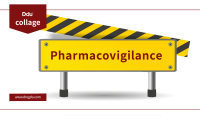-
Medical registration for India —— What to do after the first official submission?
- Source: drugdu
- 948
- August 24, 2021
-
Over 600,000 COVID-19 tests genomically sequenced in the UK
- Source: drugdu
- 186
- July 5, 2021
-
Scientists identify link between genetic changes and rare childhood cancer rhabdomyosarcoma
- Source: drugdu
- 167
- June 28, 2021
-
US approves Pradaxa as oral blood thinning med for children
- Source: drugdu
- 165
- June 23, 2021
-
Novartis’ Cosentyx wins NICE backing for non-radiographic axial spondyloarthritis
- Source: drugdu
- 235
- June 21, 2021
-
Cell and Gene Therapy Catapult forms consortium of over 20 organisations
- Source: drugdu
- 158
- June 10, 2021
-
GSK’s PD-1 inhibitor Jemperli approved in the UK
- Source: drugdu
- 283
- June 7, 2021
-
NICE turns down GSK’s IV Benlysta for systemic lupus
- Source: drugdu
- 317
- June 4, 2021
-
Sanofi halts venglustat clinical programme in ADPKD
- Source: drugdu
- 277
- June 2, 2021
your submission has already been received.
OK
Subscribe
Please enter a valid Email address!
Submit
The most relevant industry news & insight will be sent to you every two weeks.













